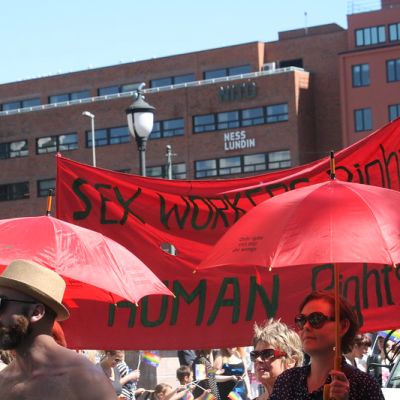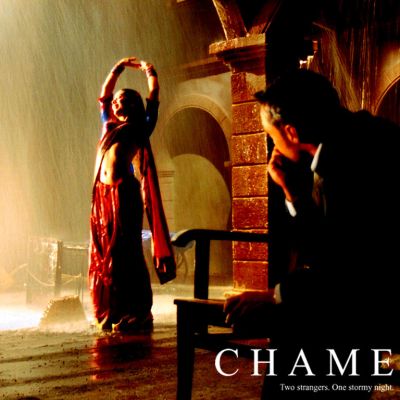Sex Work
Sexuality and the workplace are closely related, and a safe and healthy working environment is a fundamental human right.
Tales delicately yet powerfully draws out the conflict between sex workers and feminism in India,at a time when a lot of feminists thought of prostitution through a SWERF lens[1].
Ensuring the protection of sex workers’ physical and emotional wellbeing, as well as safeguarding their rights to life, profession, labour freedom, health, and reproductive and sexual rights is fundamental within a constitutional democratic society.
Funnily enough, porn played a massive role in helping me articulate my queerness (I am pansexual) and my even queerer desires.
This film reminds us of the power of connections in finding pleasure, joy, confidence and healing.
Funnily enough, porn played a massive role in helping me articulate my queerness (I am pansexual) and my even queerer desires.
Apart from systematic exclusions faced by individuals, evidently the mandatory use of a biometric-based digital ID has also reshaped the understanding of an individual’s agency and right to bodily autonomy. Gender and sexuality seem to no longer be matters of an individual’s right to privacy. With digitisation, disclosure of one’s gender and sexuality has become a hindrance to accessing one’s rights.
Connection is essential for our survival – physical, mental, emotional and spiritual. We connect with people, form networks of care and support, and in a sense weave webs of safety and comfort that we can turn to when stressed or simply want to infuse a dose of joy into our day.
The movie was criticised for its stereotypical portrayal of Debu as a gay man. But, the beauty is that it also highlights the reversal of gender roles. The smiles, and the laughter sounding throughout the house, create a cheery note in the movie.
Facebook. Google. Apple. Microsoft. Amazon. As the white male-dominated Big Five in Silicon Valley monopolise most platforms that guide online interactions almost everywhere outside China, any aspiration towards a feminist revolution has become capitalised.
Lawrence may have given Elena a world and a voice. But it was she who chose to delve into the unknown world of sexuality. It was she who chose to see the beauty and the richness of pleasure within communities of sex workers, soldiers, the elite, all alike. She alone chose to discern as well as reconcile love, as we commonly seem to know it, with a life in which she is capable of many loves.
Tales delicately yet powerfully draws out the conflict between sex workers and feminism in India,at a time when a lot of feminists thought of prostitution through a SWERF lens[1].
Further, the crucial role of sex worker organisations in promoting the rights, safety, and security of sex workers and addressing working conditions in the industry has largely gone unrecognised by national and international policymakers, donors, and some non-governmental organisations
This stigma of caste, class and sexuality is a pervasive amalgamation of socio-cultural mindsets that take root and function in myriad complex ways, and paint working women in broad, sweeping, agency-less brush strokes.
In our mid-month issue, we have the second part of the Shikha Aleya’s interview with six different people talking about aspects of sexuality and diversity from their own particular space of personal knowledge, as well as work, advocacy, art and activism across diverse fields.














